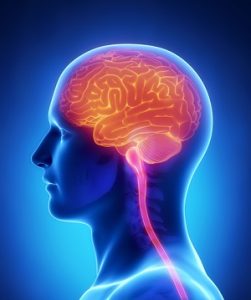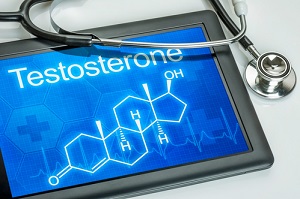Testosterone and brain function are closely related. Signs of low “test” levels include poor memory, depression, and cognitive decline. Low free testosterone is also a risk factor for Alzheimer’s disease.
A Critical Hormone
The more time passes the more we see how critically important this hormone not only for sex and muscle building but for the brain and heart as well. The evidence mounts that low levels are a risk factor for many chronic diseases.
The argument for hormone replacement therapy is bolstered when we understand how hormones affect the way our brain functions. The two organs in the body with the most testosterone receptors are the brain and heart, and the importance of these two organs for both the quality of life and even life itself can’t be understated.
This vital hormone affects how your brain handles spatial abilities, mood, motivation, memory, and protects against depression and anxiety.
Signs of Low Testosterone
When this critical anabolic hormone declines there are changes in behavior especially for men that indicate something is wrong. Our medical system is just beginning to realize this, but still does not universally recognize the value of hormone therapy for addressing these medical issues.
Here are some indications of low levels:
- Low sex drive
- Erectile dysfunction
- Depression
- Memory loss
- Lack of focus
- Low energy
- Loss of enthusiasm for life
- Loss of lean muscle mass
When levels of anabolic hormones fall the brain suffers. This alone is or should be enough to warrant medical intervention with appropriate therapy. New research has shown that low free testosterone is now associated with neurodegenerative diseases like Parkinson’s and Alzhemier’s as well as sub-clinical depression and inability to concentrate.
These problems have a serious impact on the quality of life as well as longevity and warrant more serious consideration than our medical system currently gives them. In our current medical paradigm we treat diseases like Alzhemier’s and Parkinson’s, but will not address the underlying hormone problems that seem connected to them.
Studies have shown men with depression have free testosterone levels that are almost 20% lower than normal. Higher levels result in a heightened sense of well being, not to mention a much better sex life!
Bioidentical Hormone Therapy
Why didn’t I say testosterone therapy instead of hormone therapy? Because hormones, even bio-identical one need to be balanced. Giving one hormone without consideration of how these hormones are balanced in relation to each other can cause problems.
Bio-identical hormone therapy takes this into consideration and seeks to balance all hormones in the body so that the end result is better function both of the brain and all the other bodily systems.
An antiaging doctor who is skilled in hormone therapy can help you to achieve this balance by using bio-identical hormones in the right amounts to approximate the healthy normal output of your body.
Biosignature modulation is another therapeutic approach that can address low hormone levels and restore balance leading to better overall health.
Whichever route you choose, understand that testosterone and brain function go hand in hand, and that your brain determines how your body ages.
If you have any of the symptoms listed above get yourself checked for low free testosterone. Balancing your hormones can help you to be your very best in all areas of your life! You owe it to yourself and those you love to do it!







